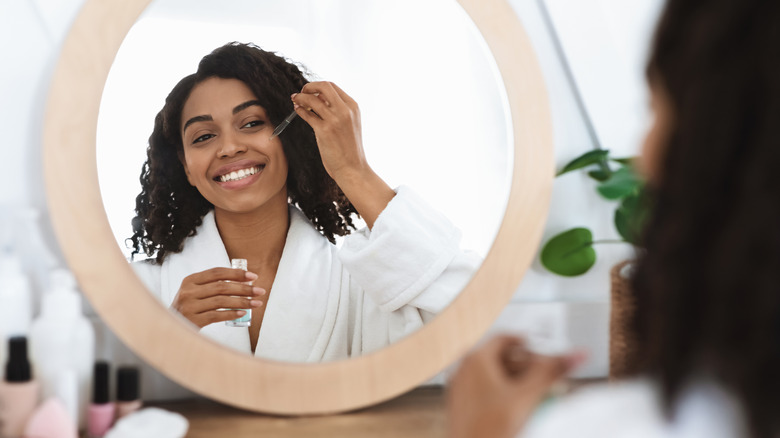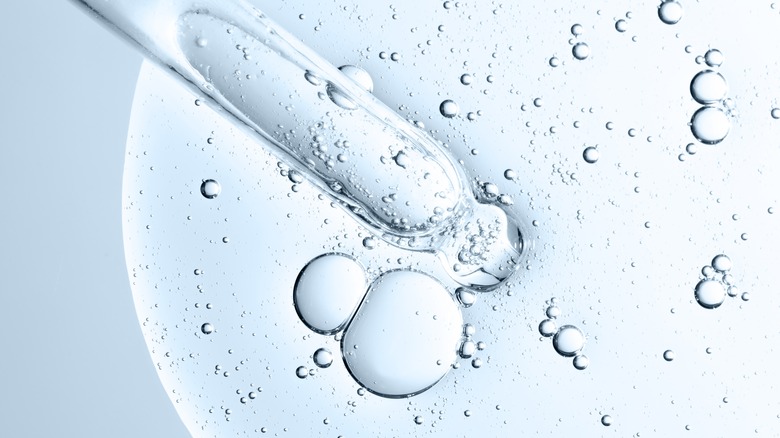What Niacinamide Really Does For Your Skin
It seems there's a new skincare fad hitting the shelves each month, like retinol, vitamin C, or sunscreen. Now, there's a new product that you might consider adding to your skincare regimen: niacinamide. Maybe these are more than just trends since some products have actual scientific evidence backing them up, but is niacinamide really worth it for your skin?
Niacinamide is a form of vitamin B3, which is a nutrient found naturally in foods such as poultry, meat, and brown rice (via The Healthy). If you're deficient in vitamin B3, it can lead to skin, kidney, and brain disorders, so taking niacinamide can help combat this deficiency (via Healthline). The best way to get it is through eating a balanced diet, including foods like eggs, milk, beans, and fish. However, you can also take niacin supplements — another form of vitamin B3 — which your body can use to make niacinamide. You can also get niacinamide by using a topical form, which is especially effective at addressing skin care concerns.
How niacinamide can help
Applying niacinamide directly to the skin is a good way to keep the skin hydrated and healthy, according to dermatologists (via The Healthy). It works by helping the skin produce more fat molecules, or ceramides, which keep the skin moisturized as it ages and naturally loses its moisture. Ceramides also help repair the outer layer of the skin. Studies show that niacinamide can brighten skin tone, help with hyperpigmentation, treat acne by reducing oil production in the skin, and reduce fine lines and wrinkles.
When choosing a product, look for five percent niacinamide formulas (via Healthline). If you have sensitive skin, you might want to start with a lower percentage and work your way up. Some products contain just a two percent concentration, which can be helpful with skin conditions like eczema. Like other skincare products, it may take as many as eight weeks to start seeing improvement, so be patient. If you have existing allergies, you may experience an allergic reaction to niacinamide, as it can trigger your body to release histamine. Talk to your dermatologist if you aren't sure.


